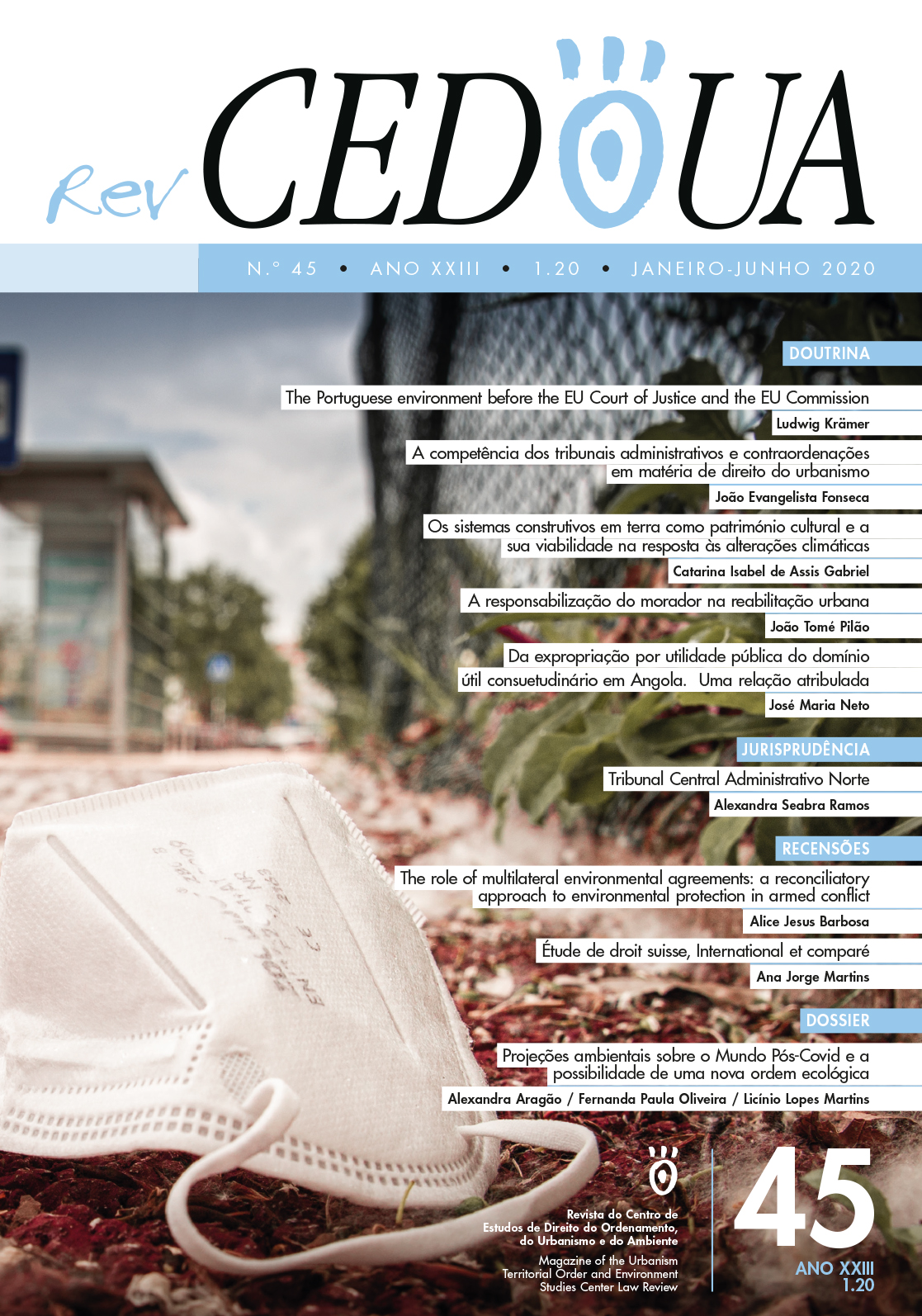The Portuguese environment before the EU Court of Justice and the EU Commission
DOI:
https://doi.org/10.14195/2182-2387_45_1Keywords:
Direito europeu do ambiente, Comissão europeia, Cumprimento do Direito Europeu, Transposição de diretivas, Direito português do ambienteAbstract
Here is the English translation in a formal and academic style:
---
The article describes and assesses the scrutiny that the Court of Justice of the European Union (CJEU) and the European Commission have carried out regarding environmental protection in Portugal, from its accession to the EU in 1986 up to 2020. It is based on cases decided by the CJEU against Portugal, as well as on the European Commission’s implementation reports. The analysis focuses on compliance in the following sectors: access to information, public participation in decision-making, and access to justice in environmental matters; environmental impact assessment; nature conservation and biodiversity protection; water management; air pollution; noise; waste management; and measures relating to climate change.
This analysis shows that the late transposition of EU environmental directives appears to be more the rule than the exception. There is EU legislation that Portugal has not transposed into national law at all and had to be reminded of its obligations by the Court of Justice. Several of these EU directives, particularly in the water sector, were already in force at the time of Portugal’s accession to the EU in 1986, when the country had virtually no domestic environmental legislation of its own.
However, Portugal also delayed the later transposition of EU environmental legislation, such as the 2000 Water Framework Directive, the 2002 Environmental Noise Directive, and legislation on environmental impact assessments for plans and programmes.
The article concludes that the supervision exercised by the Commission and the Court of Justice over environmental matters in Portugal is not strong. Excessive tolerance has led to an increasing number of legal provisions that, in practice, are not implemented, which undermines the credibility of the legislative institutions.
Ludwig Krämer, Senior Advisor at ClientEarth and member of the Advisory Board of Justice and Environment. Professor of European and German environmental law at the University of Bremen.
Downloads
Downloads
Published
Issue
Section
License
Copyright (c) 2020 Ludwig Krämer

This work is licensed under a Creative Commons Attribution 4.0 International License.
Authors retain copyright and grant the journal right of first publication with the work simultaneously licensed under a Creative Commons Attribution License that allows sharing the work with recognition of authorship and initial publication in Antropologia Portuguesa journal.



